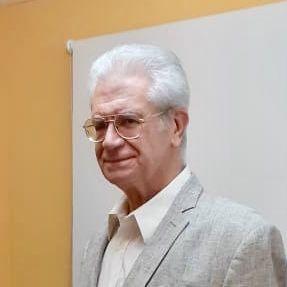The history of the Russian royal house is transcendent to understand some of the reasons that explain Russia's wartime.
In this sense, particular relevance has the Tsar Peter I, who ruled between the 1682s and 1725s, who was an architect of deep institutional reforms positioning his empire among the first European powers, founding cities like St. Petersburg, reorganizing the army with Western technology and expanding its territory, to which he founded the Russian Armada.
He declared the war on Sweden and began a series of armed conflicts that spread between the 1700s and 1721, ending with the defeat of the Swedish army, so he managed to control the Baltic Sea and the Black Sea, expel the Tatars and agree with Poland to obtain the city of Kiev.
Peter I knew that I should conquer the seas, because I held that a ruler who only possessed an army had one hand, while those who owned the navy had two.
The exposition generated in the current first Russian mandator a deep admiration, for it states that Peter I created an “invincible army” and that “it did not scratch anything, but recovered what belonged to them”.
In this sense, after twenty-seven years of coming to power, Vladimir Putin ordered on 24 February that the troops of his country's army invaded Ukraine and justified its action by arguing that it is proposed to protect people who are subject to abuse and genocide of the Kiev regime for eight years and for this it is necessary to denazify Ukraine, in addition to requiring it "neutrality" via the commitment of foreign Crime not adherence to NATO bases.
It should be noted that Russia is the third world producer of oil, the second of natural gas and positions itself in places of privilege as a producer of steel, nickel and aluminum; they love to lead wheat exports (almost 20% of world trade) and stand out in corn and sunflower.
However, the territorial domain of Ukraine would mean attaching a very important arable and productive surface of corn, wheat, sunflower, sugar beet, barley, soybeans and rapeseed. It is also an excellent supplier of wood throughout Europe and has very important proven reserves of oil and gas (off shore) and coal.
As regards recoverable uranium reserves, Ukraine holds the first place.
The joint wheat production of both countries reached almost 65 million tonnes in 2021, channeling a large percentage of exports from the Black Sea, whose northern coastal zone is part of the current war scene.
The production of this cereal by Ukraine means more than 80% of imports from Lebanon and half Somalia, Syria and Libya.
With the occupation of the Donbas region, the richest in Ukraine, a vital objective is fulfilled to conquer all the coasts of the Black Sea, which prevents the most important exit for its economy.
Currently, there are more than 30 million tons of grain blocked in the Ukrainian ports located in the Black Sea and the Azov Sea coasts.
In the midst of cross accusations and strident accusations of false triumphs with the huid of almost seven million Ukrainian inhabitants and with a conflict that seems to have no end in the short term, the future is dark, evil if it is considered the level of destruction of cultures, railroads, roads, factories, dwellings; etc.
Meanwhile, global financial markets fell sharply and oil, gas, metal and food raw materials prices increased.
This is why acute food crises are coming in North Africa and the Middle East, in addition to serious problems for several European Union countries, including Italy which denounces: “the world bread war has already begun”.
Inflation in the world is another indisputable reality.
The war conflict seems to extend indefinitely, while Putin dreams of the absolute dominion of the five seas: White, Baltic, Azov, Caspian and Black.
Everything happens before the apparent “neutral and silent” attitude of the People’s Republic of China, which continues with the Second Silk Road and the expansion of the fourth generation of mobile phone technologies, along with the digitization of productive, commercial and financial processes.
Besides the success or failure in the conquest of territories, it is clear that every war means a defeat for humanity.


Comments